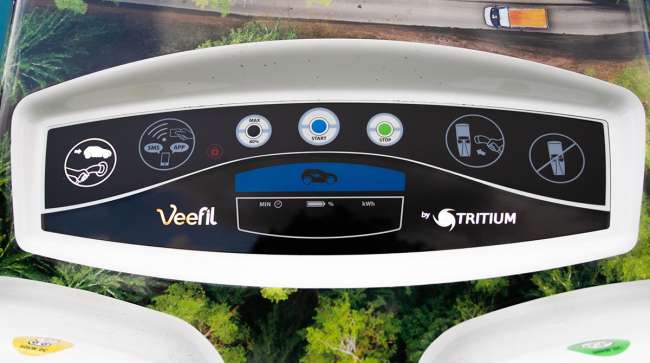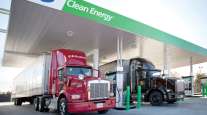Bloomberg News
EV Charger Maker Tritium Going Public in SPAC Merger Deal

[Stay on top of transportation news: Get TTNews in your inbox.]
Tritium, which makes fast chargers for electric vehicles, has reached an agreement to go public through a merger with blank-check company Decarbonization Plus Acquisition Corp. II.
The deal with the special purpose acquisition company values Tritium at $1.2 billion, the companies said in a statement May 26, confirming a Bloomberg News report. The transaction is expected to generate proceeds of about $403 million.
Unlike most SPAC mergers, Tritium’s combination with Decarbonization Plus II didn’t include raising a private placement.
Tritium only needs about $70 million to be break even for cash flow, said Robert Tichio, chairman of the blank-check company. While conversations were held about raising a placement, or PIPE, the idea ultimately was vetoed.
“I think it became clear that the weakness in the PIPE market overwhelmed the strength of any one good opportunity,” Tichio said.
Once the deal closes, Tritium is expected to be listed on the Nasdaq under the ticker “DCFC.”
Brisbane, Australia-based Tritium produces charging software and hardware — including electric pumps the size of large refrigerators — deployed at shopping malls and highway rest stops in almost 40 countries. It has supplied networks being rolled out by Volkswagen AG and Ford Motor Co. The firm’s fastest units can add about 217 miles (349 kilometers) of driving range in 10 minutes of charging, according to the company.
Founded in 2001 by members of a solar-car racing team, Tritium promoted ex-Boeing Co. executive Jane Hunter to CEO in 2020. It also has expanded beyond Australia to add design and manufacturing facilities in California and Europe. Tritium announced last month that it was selected by the U.S. Army to help its efforts to convert its vehicles — including those used in combat -— to electric power.
The proceeds from the transaction will be used to expand manufacturing capabilities, said Hunter, who will continue to lead the company after it goes public.
“We currently have a very healthy backlog, which is a great problem to have, but we want to be building closer to our main markets,” she said. Hunter adding that about 70% of the company’s revenue came from Europe, 20% from the Americas and around 10% from Asia Pacific.
It plans to expand existing facilities in Brisbane, Amsterdam and Los Angeles and potentially build a new facility in another European city.
While there is no current plan to move its headquarters to the U.S., a Nasdaq listing brings the company closer to its customers and investors, Hunter said.

Next-level technologies hold the potential to enhance safety and efficiency in transportation, but it takes a lot of work behind the scenes to advance these ideas from concept to reality. We talk with Christoph Mertz of the Robotics Institute at Carnegie Mellon and Huei Peng of the University of Michigan. Hear a snippet above, and get the full program by going to RoadSigns.TTNews.com.
“We could have listed on the ASX in Australia, but our markets aren’t here as strongly,” she said.
Adding electric car-charging infrastructure is seen as vital for automakers to spur sales, and crucial to governments as they seek to phase out combustion engine vehicles to help meet climate targets. President Joe Biden has flagged plans to spend billions of dollars on tax credits and charging stations to support the transition from gas-powered cars.
Rival supplier ABB Ltd. said last month that it plans to carve out its electric vehicle-charging business into a separate legal structure and prepare the unit for a potential listing.
The Decarbonization Plus SPAC is backed by an affiliate of Riverstone Holdings LLC. It raised $402.5 million including so-called greenshoe shares in an initial public offering in February.
With assistance from David Stringer.
Want more news? Listen to today's daily briefing below or go here for more info:




